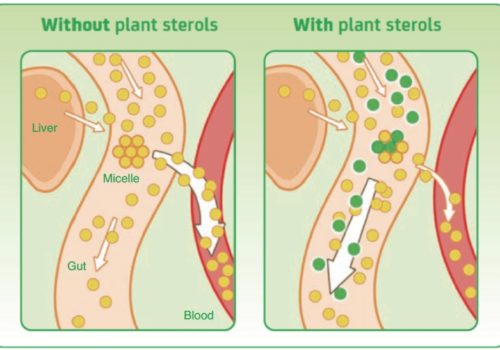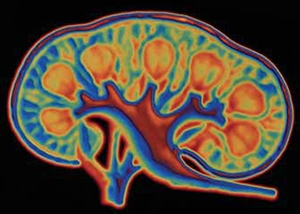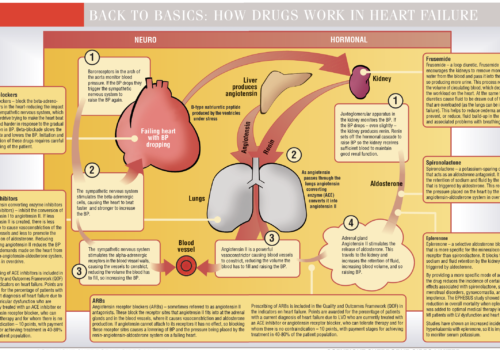Despite good evidence that physical activity is effective in preventing health complications, less than half of adults meet the minimum recommendations for physical activity. This article reviews the use and value of high-intensity interval exercise (short bursts of exercise) in different groups to reduce the risk of long-term conditions.
Back to Basics: Free NHS Health Check results sheet
Use this free downloadable results sheet to help you and your patients make the most of the NHS Health Check. In addition to recording all the test results, the sheet features a list of personal goals and healthy lifestyle tips for your patient to increase motivation.
Heart failure today: The challenge
Heart failure is an important public health problem that is associated with significant morbidity, mortality and healthcare costs, especially in the over-65s. Despite reductions in HF-related mortality, hospitalisations remain frequent and readmissions continue to rise. It is these admissions to hospital that put a financial strain on the local health economy, and cause stress and anxiety for the patient and supporting family.
Plant sterols and cardiovascular risk
The World Health Organization recognises that 80% of CHD could be prevented by positive lifestyle changes. Healthcare professionals should encourage and support patients to quit smoking, increase physical activity, and make positive dietary and lifestyle changes to help better manage their heart health.
Briefing: Chronic kidney disease
Chronic kidney disease (CKD) is the term used to describe long-lasting abnormal kidney function and/or structure. It is common and often exists together with other conditions like cardiovascular disease (CVD) and diabetes. CKD is an essential diagnosis because treatment can reduce the risk of CVD and prevent or slow progression to kidney failure. This is your briefing on important NICE guideline changes that will help us to better identify at-risk patients while making over-diagnosis less likely.
The increasing challenge of heart failure: Improving outcomes
GPs and practice nurses face many challenges when diagnosing and managing heart failure. This comprehensive supplement reviews all aspects of chronic and acute HF, from epidemiology, through diagnosis, lifestyle interventions, pharmacological and device therapies to implementation of current guidelines.
Optimising the management of heart failure
Evidence-based guidelines offer many options to improve and extend the lives of patients with heart failure (HF). This article reviews current best practice in the management of chronic HF and of acute decompensated HF, and considers recent insights, controversies and innovations in this important field.
Heart failure: Improving outcomes today
Optimising the management of heart failure improves patient survival and reduces hospital admissions. However, standards of care continue to vary, and many HF patients are still not receiving recommended therapy with disease modifying drugs or specialist input to their care. Outcomes will only improve for all HF patients if evidence-based clinical guidelines are implemented throughout the NHS.
Back to Basics: Hydration
Good hydration is essential for health, especially for people who may not feel thirsty because of ageing or illness. Maintaining good levels of hydration can prevent or help in treating low blood pressure, urinary infections and constipation. It’s so easy to assess hydration status – this useful guide will help.
Back to Basics: Flu vaccinations 2015-2016
Colder days and longer nights are reminders that the annual winter flu season is here. It’s important to offer flu vaccination to vulnerable patients (young children, the elderly and people with underlying health conditions) to help prevent serious complications. This Back to Basics will help you to make sure that your practice is offering the right flu vaccine.
Back to Basics: CKD – risk assessment and monitoring
Chronic kidney disease (CKD) is now classified using a combination of estimated glomerular filtration rate (eGFR) and proteinuria measured by albumin:creatinine ratio (ACR). The aim is to more accurately define each patient’s risk of cardiovascular disease and worsening CKD, and to ensure that patients are monitored appropriately.
Going back to basics in cardiovascular disease
Volume 8, Supplement 2, Jul-Aug-Sep 2011





























